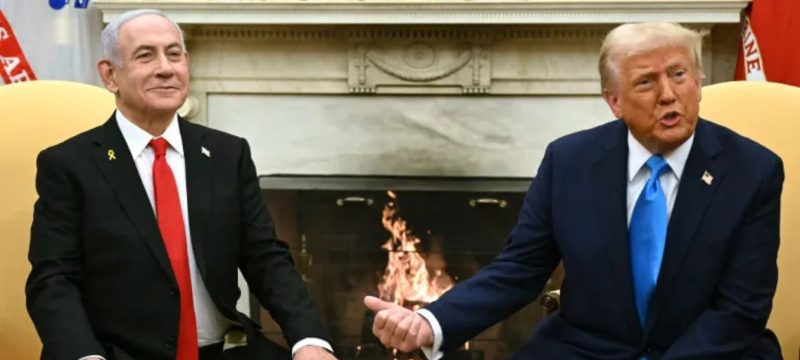Israeli Prime Minister Benjamin Netanyahu and U.S. President Donald Trump have reportedly reached a preliminary agreement on a plan to end the war in Gaza within two weeks, replace Hamas with Arab-led administration, and broaden the scope of the Abraham Accords, according to a report by Israel Hayom.
The report, citing a source close to the talks, states that Netanyahu and Trump, along with U.S. Secretary of State Marco Rubio and Israeli Minister of Strategic Affairs Ron Dermer, had a highly optimistic phone conversation late Monday night. During the call, the foundation for a new regional structure was discussed.
Read more: Israeli Airstrikes Claim 14 More Lives in Gaza Amid Ongoing Conflict
The proposed plan envisions governance of Gaza being handed over to a coalition of four Arab nations, reportedly including Egypt and the United Arab Emirates. Hamas leadership would be forced into exile, and all Israeli hostages still held in Gaza would be freed. The initiative also seeks to foster new diplomatic ties between Israel and several Arab and Muslim countries, such as Saudi Arabia and Syria.
This diplomatic push follows a recent U.S. retaliatory strike against Iran, which both Trump and Netanyahu hailed as a strategic win. Netanyahu later appeared in a video message, celebrating the development and calling it an opportunity to dramatically expand peace deals in the region.
“We have achieved a significant victory over Iran,” Netanyahu said. “Now is the time to push forward with peace agreements. This moment must not be wasted—not even for a single day.”
Despite the ambitious outline, the plan faces considerable roadblocks. Key Arab states have made it clear they will not support Gaza’s reconstruction unless the Palestinian Authority (PA) is given a central role in governing the territory—something Netanyahu has strongly opposed.
Hamas, too, has rejected any suggestions of exile for its leadership, and no specific details have been shared regarding how this would be implemented.
As a possible gesture toward Arab states and the international community, Israel may express conditional backing for a future two-state solution, tied to reforms within the Palestinian Authority. In return, the U.S. is reportedly considering formal recognition of Israeli sovereignty over parts of the occupied West Bank, a move likely to intensify regional tensions.
Another controversial element of the plan involves proposals for voluntary emigration of some Gaza residents to third-party countries—a concept widely condemned by human rights organizations as a form of forced displacement.
The reported deal surfaces amid a shaky ceasefire in Gaza. Earlier this week, Iran allegedly violated the truce, triggering frustration in Washington. Trump publicly criticized Netanyahu over potential retaliation and even urged an end to the Israeli Prime Minister’s ongoing corruption trial—an unusually direct rebuke of an ally from the former U.S. president.









